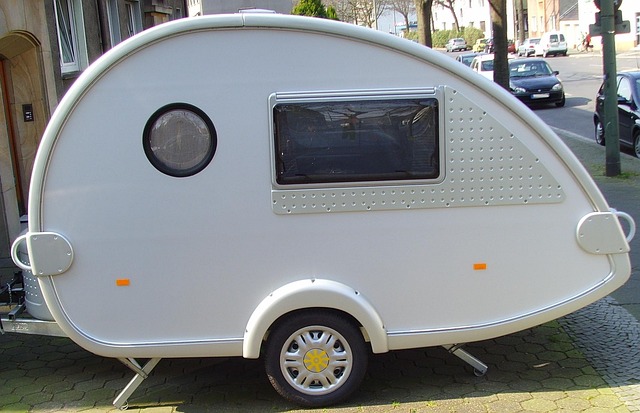When disposing of an RV battery, it's crucial to handle it with care due to its hazardous contents. Whether lead-acid or lithium-ion, these batteries require special attention. Firstly, never attempt to charge a damaged battery as it may leak gases. Clean any spills with a mixture of baking soda and water, then transport the battery to a certified recycling center designed for handling such materials. These centers are crucial for safely recovering and recycling the chemicals within the battery cells. They can be found by contacting local waste management services or through specialized online directories focused on battery disposal and recycling. Always follow the manufacturer's instructions for disposal, and never dispose of an RV battery in regular trash. By doing so, you ensure personal safety, contribute to environmental sustainability, and adhere to regulations while extending the life of the battery's components. Proper disposal at certified centers supports sustainable practices within the RV community and helps protect the environment. Remember to deactivate the battery, clean its terminals, record any issues, and strip off additional attachments before recycling. Ensure it is fully discharged on a trickle charger for safe and environmentally friendly disposal. RV battery manufacturers often have take-back programs or provide guidelines for responsible disposal, which is essential for the health of our planet.
Discarding an RV battery requires careful consideration due to its potential environmental impact. This article delineates three safe disposal methods tailored for RVers, ensuring both compliance with regulations and environmental stewardship. We’ll explore the importance of proper battery disposal, starting with identifying authorized recycling centers, detailing preparation steps for recycling, and offering safe home disposal alternatives. Additionally, we’ll discuss best practices for eco-friendly RV battery management and the role of manufacturers in responsible disposal processes. By adhering to these guidelines, you can contribute to a greener planet while safely managing your RV battery’s lifecycle.
- Understanding RV Battery Disposal: An Overview
- Method 1: Locating Authorized Recycling Centers for Your RV Battery
- Method 2: Proper Steps to Prepare and Hand Over Your RV Battery for Recycling
- Method 3: Safe DIY Home Disposal Options for Your RV Battery
- Best Practices for Environmental Responsibility When Disposing of RV Batteries
- The Role of Manufacturers in RV Battery Disposal and How to Engage with Them
Understanding RV Battery Disposal: An Overview

When it comes time to dispose of an RV battery, understanding the proper methods is crucial for both environmental safety and personal protection. RV batteries, typically lead-acid or lithium-ion types, require careful handling due to their composition and the hazardous materials they contain. Proper disposal involves several steps to ensure these substances do not endanger the environment or human health.
Firstly, you should never attempt to charge a battery that you suspect is beyond repair; this can lead to dangerous situations such as gas leaks. Instead, remove the battery from your RV and clean any spills or leaks with a solution of baking soda and water. Once cleaned, the battery should be taken to a certified recycling center. These facilities are equipped to handle the chemicals within the battery cells and break them down for reuse in new batteries. It’s important to locate a facility that accepts RV batteries; their locations can often be found through local waste management services or online directories dedicated to battery disposal and recycling. By following these steps, you contribute to sustainable practices and ensure compliance with environmental regulations. Always check the manufacturer’s guidelines for specific recommendations on disposal, and never throw an RV battery in the trash.
Method 1: Locating Authorized Recycling Centers for Your RV Battery

When the time comes to dispose of your RV battery, it’s crucial to handle it with care and in an environmentally responsible manner. The first safe method for disposal is to locate authorized recycling centers that specialize in RV batteries. These centers are equipped to manage the intricate components within these batteries, ensuring that none of the hazardous materials they contain end up posing a threat to the environment. To find such facilities, you can start by checking with local waste management authorities or visiting their official websites. They often provide directories of certified recycling centers that accept RV batteries. Additionally, many battery manufacturers run recycling programs where they partner with authorized collection points; utilizing these services not only ensures proper disposal but may also offer you a return or rebate for your old battery. Always verify the credentials of the center to ensure compliance with local, state, and federal regulations regarding battery disposal. By choosing an authorized recycling center, you contribute to a safer planet and support sustainable practices within the RV community.
Another important aspect when disposing of an RV battery is to never attempt to dispose of it in regular trash bins or with standard garbage collection services. Many regions have strict regulations prohibiting the improper disposal of batteries due to their potential environmental impact. Improper disposal can lead to soil and water contamination, harming wildlife and potentially affecting human health. Therefore, take the time to research and locate the nearest certified recycling center for your RV battery needs. This not only safeguards the environment but also aligns with responsible waste management practices that are becoming increasingly important in today’s ecological consciousness.
Method 2: Proper Steps to Prepare and Hand Over Your RV Battery for Recycling

When the time comes to dispose of your RV battery, proper preparation and recycling are crucial for environmental safety and adherence to local regulations. The first step in this process is to ensure that the battery is no longer active or poses a hazard. Remove any connected cables carefully to prevent electrical shocks or fires. Once the battery is disconnected, clean any terminals and surrounding areas to prevent corrosive residues from entering the environment.
To recycle your RV battery effectively, it’s important to locate a certified recycling center that specializes in lead-acid batteries, as they have the necessary equipment and expertise to handle the materials safely. Before handing over your battery, document its condition or any defects; this information can be valuable for the recycling facility and may influence the recycling process. Remove any additional components such as hold-down brackets or mounting hardware, as these are often made of metal and can also be recycled. Ensure that the battery is drained of any remaining charge by leaving it on a trickle charger for a few days before delivery. By taking these preparatory steps, you contribute to the safe disposal and recycling of your RV battery, minimizing environmental impact and ensuring that its valuable materials are reclaimed and reused responsibly.
Method 3: Safe DIY Home Disposal Options for Your RV Battery

When the time comes to dispose of your RV battery, safety and environmental considerations are paramount. Method three for safe disposal can be implemented at home with careful attention to proper handling and recycling procedures. The first step is to thoroughly clean the battery terminals and surrounding area with a mixture of baking soda and water to prevent any accidental short circuits or fires during the disposal process. Once cleaned, remove the battery from its housing and inspect it for any leaks or damage that may have compromised its integrity over time.
If your RV battery is lead-acid type, such as a traditional deep cycle battery, it’s essential to handle it with gloves and eye protection as lead is toxic if ingested or inhaled as dust. To safely neutralize the acid within the battery, mix water with an equal amount of baking soda and slowly pour this mixture into the battery cells while carefully tilting the battery to ensure the solution fully covers the lead plates. This neutralization process should be done in a well-ventilated area, away from children and pets. After ensuring the battery is completely drained and neutralized, it can be placed in a sturdy box designed for battery disposal or an appropriate recycling container if available. Many local waste management facilities or retailers that sell batteries offer collection points for used RV batteries to be recycled responsibly. Always check with your local regulations and resources for the most effective and compliant disposal method in your area.
Best Practices for Environmental Responsibility When Disposing of RV Batteries

When the time comes to replace your recreational vehicle (RV) batteries, it’s crucial to handle the disposal process responsibly to minimize environmental impact. RV batteries, typically lead-acid or deep-cycle varieties, contain hazardous materials such as sulfuric acid and lead dioxide. These substances can be detrimental to ecosystems if not disposed of correctly. Firstly, locate certified recycling centers specializing in battery disposal. These facilities are equipped to safely recover and recycle the components, ensuring they do not end up in landfills where they could leak and contaminate the soil and water supplies.
Secondly, always follow local regulations regarding battery disposal. Many regions have specific guidelines for handling and recycling batteries due to their potential harm. Additionally, consider the condition of the battery before disposal. If it’s still functional, you might extend its life by using it in applications where deep discharge cycles are acceptable, thus delaying its entry into the waste stream. Proper labeling of the batteries with clear indications that they contain hazardous materials is another best practice. This ensures that they are treated with care throughout the recycling process. By adhering to these environmentally responsible disposal practices for your RV batteries, you contribute to the preservation of natural resources and the health of our planet.
The Role of Manufacturers in RV Battery Disposal and How to Engage with Them

When the time comes to dispose of your RV battery, it’s crucial to handle the process responsibly due to the potential hazards associated with improper disposal. Manufacturers play a pivotal role in this process by providing clear guidelines and offering take-back programs for their batteries. These initiatives ensure that the batteries are recycled or disposed of in an environmentally safe manner, preventing harmful substances from entering landfills. It’s advisable to start by consulting your RV battery’s manufacturer’s handbook or contacting their customer service directly. They can inform you about the specific disposal methods recommended for their products and often assist with locating recycling facilities that accept RV batteries. Additionally, many manufacturers have partnerships with local recycling centers, which can simplify the disposal process for RV owners. By engaging with manufacturers and adhering to their guidelines, you contribute to the sustainability of battery disposal practices, ensuring that your RV battery’s end-of-life is managed effectively and responsibly.
When disposing of an RV battery, it’s crucial to prioritize environmental safety and legal compliance. This article has outlined three effective methods for responsible RV battery disposal: identifying authorized recycling centers, following proper preparation steps for recycling, and exploring safe DIY home disposal options. By understanding the environmental impact of improper disposal and the importance of battery recycling, RV owners can make informed decisions that contribute to sustainability. Engaging with manufacturers about their disposal programs is also key, as they play an integral role in this process. Adhering to these practices not only ensures the health and safety of our environment but also sets a precedent for responsible ownership within the RV community. Remember to act responsibly and dispose of your RV battery safely, protecting the planet for future generations.
